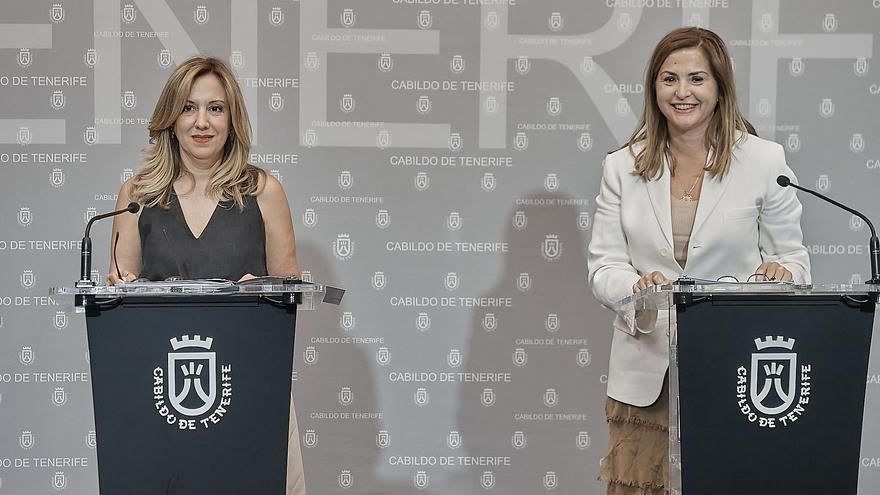
The Tenerife Island Council will allocate a budget of 10 million Euros for municipalities to develop projects to promote employment among specific sectors of the population such as women, young people, and long-term unemployed individuals, with priority for the seven least populated municipalities. This was one of the main agreements of the Government Council, which also approved an additional one million Euros for the entities belonging to the Insular Social Policies Network. President Rosa Dávila and Fifth Vice President Águeda Fumero explained this while Vice President Lope Afonso was away on a trip to Brussels “to discuss matters relevant to the Island”, during the session. Dávila highlighted “the positive unemployment figures in Tenerife, the island with the largest decrease in the Canaries”. She mentioned that “the number of contributors increased by 13,000 in June (+3.5%) compared to the same month the previous year, now reaching 433,000 Tenerife residents”. Regarding unemployment, she pointed out that “it has decreased by over 4,131 individuals on our island, representing a 5.5% reduction compared to June 2023”. A “very positive” figure that, according to the island’s president, “reflects the strength of Tenerife’s labour market”. Finally, the number of registered contracts increased by over 10%. With this rise, June concluded with a total of 24,967 contracts signed, “which contributes to a decrease in the unemployment rate”, Dávila says.
Vulnerable Individuals
[–>
The president linked these data to the approval of measures “for those individuals facing the most difficulties in the job market”. The allocation of 10 million Euros focuses on promoting youth employment and is also aimed at long-term unemployed individuals. The budget will be distributed based on criteria agreed upon within the Canarian Federation of Municipalities (Fecam), which establishes positive discrimination, particularly towards municipalities with fewer than 5,000 inhabitants. The programmes will prioritize the involvement of individuals under 30 and long-term unemployed individuals, while women must account for at least 50% of the hires. These grants will allow around 1,000 beneficiaries to receive training. Out of this total, 750 will access a contract in their own municipalities to work on local and social projects. Dávila summarises: “The government team is committed to creating new jobs, especially in areas with fewer than 5,000 inhabitants where it is more challenging to retain the population”. She reminds that Tenerife has 7 municipalities below this threshold: Buenavista del Norte, El Tanque, San Juan de la Rambla, Fasnia, Garachico, Vilaflor de Chasna, and Los Silos.
Social Action
[–>
Águeda Fumero highlighted an increase of 972,000 Euros to enhance the provision of social services through the Institute of Social and Health Care Assistance (IASS). Therefore, 850,000 Euros will be allocated to the Insular Social Policies Network. In particular, the allocations for the existing and new affiliated entities will increase by 20% and around 300,000 will be provided for the ten newly incorporated entities. Additionally, about 128,000 Euros will be specifically designated to Provivienda for a housing resource project for women victims of gender-based violence.















